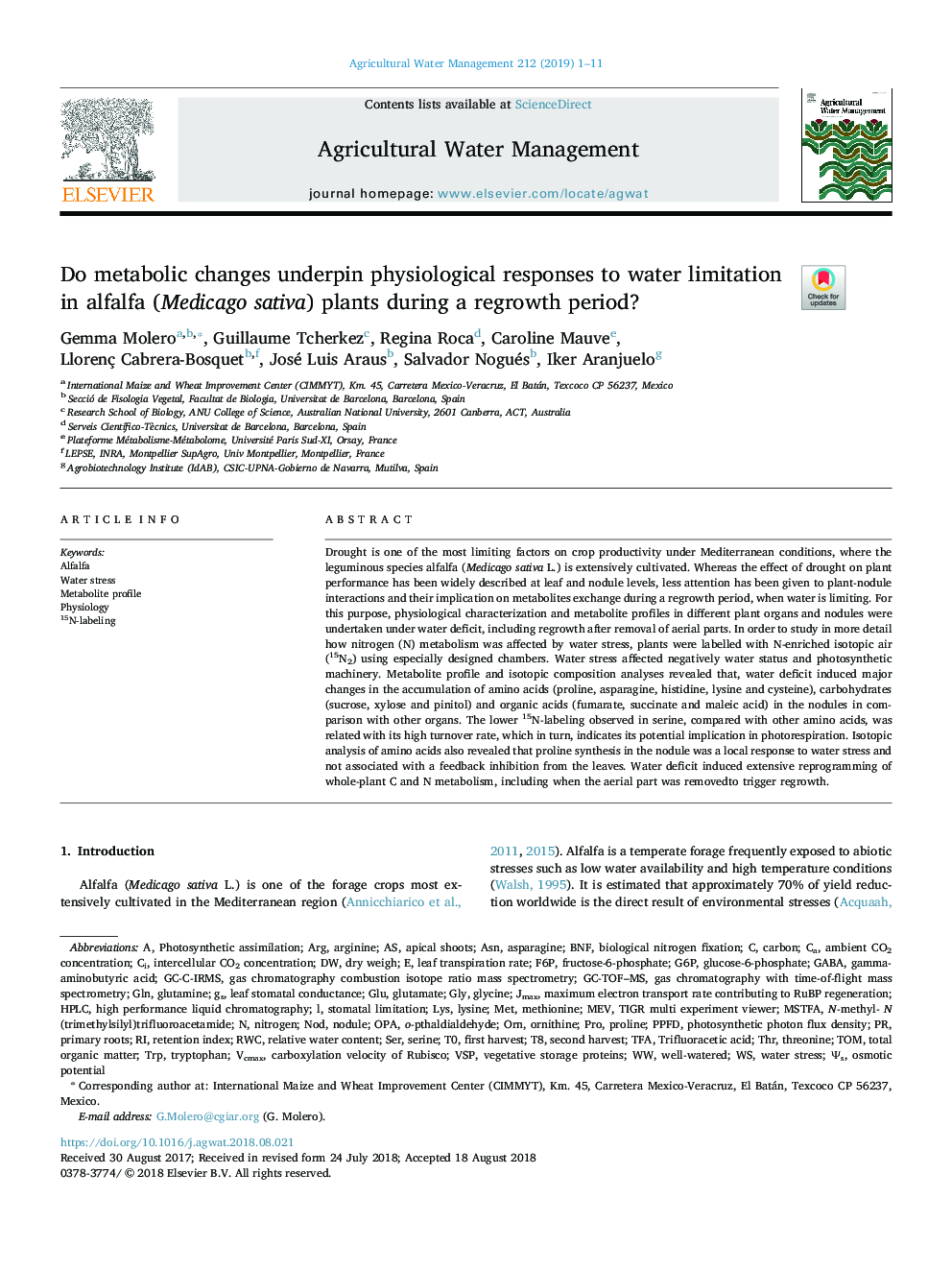| Article ID | Journal | Published Year | Pages | File Type |
|---|---|---|---|---|
| 8959365 | Agricultural Water Management | 2019 | 11 Pages |
Abstract
Drought is one of the most limiting factors on crop productivity under Mediterranean conditions, where the leguminous species alfalfa (Medicago sativa L.) is extensively cultivated. Whereas the effect of drought on plant performance has been widely described at leaf and nodule levels, less attention has been given to plant-nodule interactions and their implication on metabolites exchange during a regrowth period, when water is limiting. For this purpose, physiological characterization and metabolite profiles in different plant organs and nodules were undertaken under water deficit, including regrowth after removal of aerial parts. In order to study in more detail how nitrogen (N) metabolism was affected by water stress, plants were labelled with N-enriched isotopic air (15N2) using especially designed chambers. Water stress affected negatively water status and photosynthetic machinery. Metabolite profile and isotopic composition analyses revealed that, water deficit induced major changes in the accumulation of amino acids (proline, asparagine, histidine, lysine and cysteine), carbohydrates (sucrose, xylose and pinitol) and organic acids (fumarate, succinate and maleic acid) in the nodules in comparison with other organs. The lower 15N-labeling observed in serine, compared with other amino acids, was related with its high turnover rate, which in turn, indicates its potential implication in photorespiration. Isotopic analysis of amino acids also revealed that proline synthesis in the nodule was a local response to water stress and not associated with a feedback inhibition from the leaves. Water deficit induced extensive reprogramming of whole-plant C and N metabolism, including when the aerial part was removedto trigger regrowth.
Keywords
NODambient CO2 concentrationF6PG6PTHRASNGLNToMORNMSTFAMEVRWCTFAPPFDBNFOPATrpGC-C-IRMSVcmaxArginineAsparagineArgTrifluoracetic acidgamma-aminobutyric acidornithineSERBiological nitrogen fixationthreonineTryptophanJmaxSerineretention indexgas chromatography combustion isotope ratio mass spectrometryintercellular CO2 concentrationphotosynthetic photon flux densityfructose-6-phosphateLysineLYSTotal organic matterMethionineRelative water contentstomatal limitationMETLeaf transpiration ratePRONoduleNitrogenLeaf stomatal conductanceProlineCarbonhigh performance liquid chromatographyHPLCGABAGluglutamateglutamineglucose-6-phosphateGlyGlycine
Related Topics
Life Sciences
Agricultural and Biological Sciences
Agronomy and Crop Science
Authors
Gemma Molero, Guillaume Tcherkez, Regina Roca, Caroline Mauve, Llorenç Cabrera-Bosquet, José Luis Araus, Salvador Nogués, Iker Aranjuelo,
